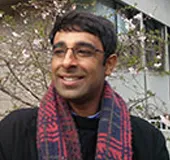-
CENTRES
Progammes & Centres
Location
 PDF Download
PDF Download 
ORF Visiting Fellow Avinash Paliwal travelled across Afghanistan during the spring of 2013. This is his first hand account of how events are shaping up in the country in the run-up to the US drawdown in 2014.
ORF Visiting Fellow Avinash Paliwal travelled across Afghanistan during the spring of 2013. This is his first hand account of how events are shaping up in the country in the run-up to the US drawdown in 2014.
They might not be in a position to take over the city or the country, but the Taliban in Kabul Tare but a phone call away. My interpreter, Mustafa (name changed), a Tajik from the Panjshir Valley with dark features and a strong build, called Syed Akbar Agha, head of the Jaish-ul-Muslimeen faction of the Taliban and a former ‘chief-of-staff level commander’ of Mullah Omar around 1.45 pm to seek an appointment. Basic information was shared: an Indian student from a British university studying India-Afghanistan relations wants Taliban’s take on India’s role. No names were given.
As we sat in the surprisingly stylish Flower Street Café on Taimani Street enjoying a continental lunch, we did not expect a positive response, at least not for a meeting within an hour itself. How could Akbar Agha be sure of my intentions and identity? He did not even know who Mustafa was. More worryingly, how could I be sure that Mustafa and I would be safe? Scheduled for 3 pm, we were to reach Spin Kalay, just 9 km outside Kabul, and ask for ‘Agha Sahib’ at the local mosque. Given the lack of street names and house numbers, finding houses in Kabul is much like a treasure hunt.
A Pashtun-dominated town, Spin Kalay houses many Taliban leaders and soldiers, and is not a top priority for logistics companies catering to expats. It is said that the Taliban has a hold in this area strong enough to influence bureaucratic and police appointments. When we reached the mosque in Spin Kalay, the maulvi refused to guide us to Agha’s house. If anything went wrong, the Taliban will not let the maulvi live in peace, perhaps not even live at all. Help, however, came from unexpected quarters–a child playing outside the mosque took us to the house.
At Agha’s doorstep, another child led us to the guest-room in the opposite house. We were fairly anxious by now, and unlike Mustafa, my lack of religious beliefs did not afford me the comfort of the prayer beads rolling steadily between Mustafa’s thick fingers. The situation became more tense as four Taliban foot soldiers in shawls came in and sat disquietingly close to us, forming a sort of cordon. Even though we were spared a top-to-bottom body frisk, they shook both my hands for a few seconds longer than usually considered appropriate; I was later informed that it is done to check for rope-burns or other marks consistent with a soldier’s hands.
The next twenty minutes were a question-answer session from their side. One of the four Talibs who spoke Urdu wanted details about me and why I was in Afghanistan during “such times”. The others, between long silences, kept Mustafa engaged in conversation. Once the initial questioning was over, there was silence for the next few minutes.
The icebreaker finally came from the least expected person: the Urdu-speaking Talib spoke with a wide grin–“Hindustan Afghanistan ka dost hai,” (“India is Afghanistan’s friend”), before speaking in Pashto to Mustafa, “Your Pashto got us confused brother; are you sure you don’t have a Pashtun connection?” Akbar Agha entered the room at this point and what followed was a candid interview ending with an offer to be their guests for the evening.
This incident, one of the many during my month-long stay in Afghanistan (April-May 2013), could have been eminently forgettable but for the quick glimpse it offered into the myriad challenges confronting Afghanistan.
It is easy to make the common mistake of judging the Afghan society through an ethnic prism. This
overpowering and simplistic tendency can be misleading. It is true that the two dominant ethnic groups, Pashtuns and Tajiks, are wary of each other. But this is only part of the story. There are bonds between different ethnic groups which are deep and abiding, and exert considerable influence on attitudes. Stories of inter-ethnic marriages and families made up of activists from different political and armed movements are common in Afghanistan. The resulting ethnic potpourri means that it is difficult to pin down ethnic loyalties. What seems to be clear-cut lines of ethnic distinction and conflict is often an entangled social network which defies simplistic analysis. In Kabul, political ties and economic patronage often defy ethnic identities and linkages based on kinship.
The views expressed above belong to the author(s). ORF research and analyses now available on Telegram! Click here to access our curated content — blogs, longforms and interviews.

Avinash Paliwal is an Associate Professor of International Relations at SOAS University of London and author of My Enemys Enemy: India in Afghanistan from the ...
Read More +